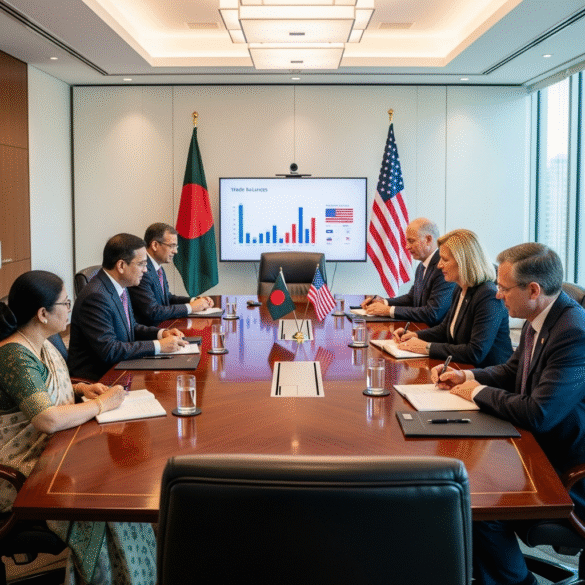During a lively chat in Dhaka, South Asia expert Michael Kugelman shared smart, practical ideas about how Bangladesh can navigate recent trade shifts from the United States and turn them into steady gains for workers, factories, and small businesses, drawing listeners in by saying the right moves now can protect jobs and open new chances for trade and teamwork. He pointed out that higher import costs abroad can push countries to find new partners and new ways of working together, and that this pressure can be turned into opportunity if leaders focus on clear plans and friendly deals that help mills, traders, and markets stay busy. Kugelman noted that ties with the United States have moved more toward buying and selling goods, which means talks between officials are now more about making shipments smooth and predictable rather than only funding projects, and that fewer hurdles in trade talks can let both sides talk openly about practical support that reaches people on the ground. Looking around the neighborhood, he explained that nearby countries face similar nudges, so Bangladesh does not have to pick sides; instead it can join small, focused partnerships that share power, roads, ports, or energy in ways that help everyone. He pointed to real chances in regional cooperation, such as shared energy deals with neighbours and stepped-up links for moving goods, where Bangladesh could serve as a helpful connector if it keeps ties warm and builds trust. Kugelman also named challenges that need steady work: cross-border disputes, blockages that slow trucks, too much reliance on one big industry, cautious investors, and growing pains in business systems. He was positive about solutions, urging steps like boosting local markets, improving ports and customs, widening trade partners so supplies stay safe, and supporting small teamwork projects that fit with wider goals. By mixing inputs from friendly partners, simplifying rules, and training local workers, Bangladesh can lower costs, keep factory schedules firm, and protect family incomes. His message was calm but hopeful: this is not about avoiding change but steering through it with smart planning, clear rules, and stronger local capacity. If Bangladesh leans into steady logistics, regional projects, and fair, practical deals, it can turn global shifts into real benefits at home, keeping factories busy, jobs steady, and communities growing together.
Navigating Global Trade Shifts: Expert Tips for Bangladesh’s Strong Path Forward
42


